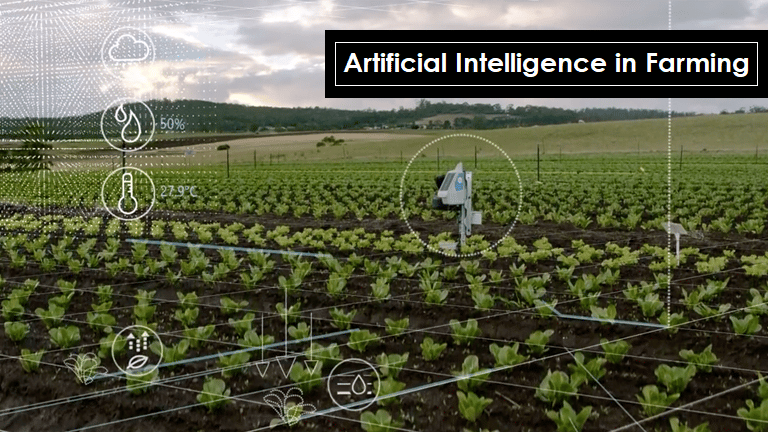Artificial Intelligence (AI) is expanding its ground-level footprints making a significant impact on the most vital sector in the world — Agriculture. Artificial intelligence in agriculture now provides cutting-edge technology for harvesting with better productivity and crop yields after the healthcare, automotive, manufacturing and finance sector.
The agricultural sector is the foundation of the world economy and the world will need to produce 50 percent more food by 2050, with the increasing population. AI-enabled technology will help farmers get more out of the soil, while making more sustainable use of resources. There are few great Artificial Intelligence Influencers who are sharing wonderful information among their audience.
AI Assessed Farm Data
Farms on the ground generate hundreds of thousands of data points per day. Farmers can now evaluate a number of items in real time, though, with AI ‘s help. They may determine the environment, temperature, water use, or soil conditions gleaned from their farm to help inform their choices. For example, Taranis, a leading agricultural precision intelligence platform, works with farms on four continents, flying high-definition cameras above fields to give farmers eyes. Thus, AI-driven technologies help farmers optimize planning by determining crop choices, best hybrid seed choices and resource utilization to generate more generous yields.
Indoor Agriculture
New techie farmers are now becoming creative and heading towards indoor farming. This is a crop or plant growing technique, usually on a large scale, entirely within a packed setting. This way of farming also incorporates growing methods such as hydroponics and leverages artificial lights to provide the nutrients and light rates required for growth for plants. AI driven indoor farming is now enticing a whole new breed of farmers. For example, last year, 80 Acres Farms, a pioneer in indoor growth, opened the first fully automated indoor growing facility in the world. The AI-driven technologies at the organization track each phase of the that process. Use AI in agriculture, therefore, helps farmers around the world to run more effectively, allowing farms of all sizes to work and thrive while keeping the planet fed.
Improving Quality of Harvest
Today’s AI systems help farmers improve the quality and accuracy of harvests using precision farming. It leverages AI to help recognise on farms illnesses in plants, pests and bad plant nutrition. AI sensors can detect and target weeds in the right buffer zone and then decide which herbicides to apply. It helps thwart applications of herbicides and extreme toxins which find their way into the food today. For instance, an AI developed by a team of researchers to detect diseases in plants. The team leveraged a method of transferring learning, teaching the AI to identify crop diseases and pest damage, and used TensorFlow, the open-source library of Google, which created a library of 2,756 images of cassava leaves from Tanzanian plants. In that case, with 98 per cent accuracy, AI was able to detect disease.
Vision-enabled Machine farming
Farmers monitor their farms using Computer Vision and deep learning algorithms to capture data from drones that fly over their fields. AI-powered cameras will take photographs of the entire farm from drones and analyse the photographs in near-real – time to detect problem areas and possible upgrades. For example, several large industrial farms have tried using computer vision to detect and confiscate sick pigs at the outset of an African swine fever epidemic which is sweeping China, considering reports. So, drones can capture much more land in much less time than humans.
